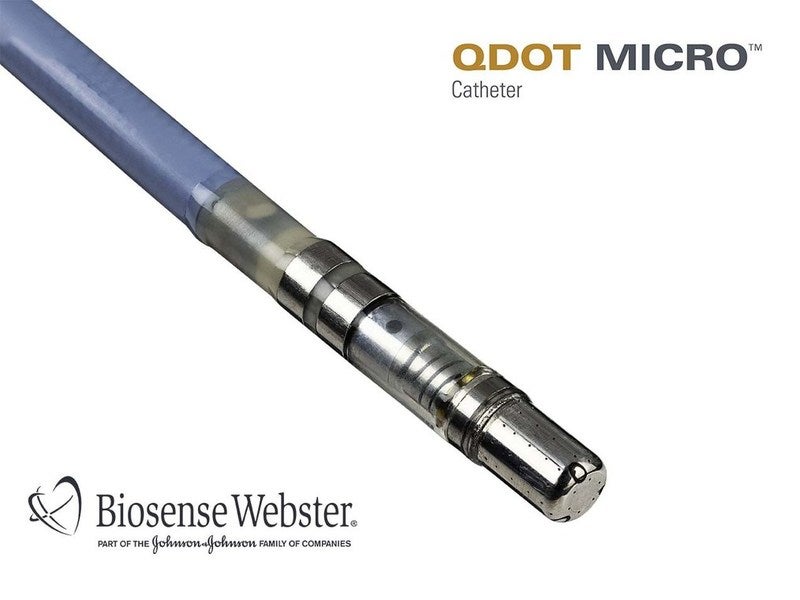
Biosense Webster, a subsidiary of Johnson & Johnson Medical Devices Companies, has started enrolling and treating patients in a US Investigational Device Exemption (IDE) study of its QDOT MICRO Radiofrequency (RF) Ablation Catheter.
QDOT is intended to treat symptomatic drug-refractory paroxysmal atrial fibrillation (AF). It has been designed to deliver high power ablation in a short amount of time.

Discover B2B Marketing That Performs
Combine business intelligence and editorial excellence to reach engaged professionals across 36 leading media platforms.
AF is a type of irregular heartbeat and if a patient’s heartbeat returns to normal without treatment within seven days then their condition will be referred to as paroxysmal atrial fibrillation. This often becomes a permanent condition that needs regular treatment.
The steerable multi-electrode catheter is said to enable mapping of heart, and features optimised temperature control, micro-electrode technology and force-sensing technology.
The first patient in the device’s US IDE study was treated at NYU Langone Health’s Heart Rhythm Center in New York City. The trial will be conducted in up to 30 participating centres in the US and will enrol approximately 185 patients.
Heart Rhythm Center director Larry Chinitz said: “The delivery of 90W of RF power in a short, four-second ablation session is a significant advancement in the treatment of paroxysmal atrial fibrillation.

US Tariffs are shifting - will you react or anticipate?
Don’t let policy changes catch you off guard. Stay proactive with real-time data and expert analysis.
By GlobalData“We’re eager to see whether this new technology helps to reduce procedure time and improve clinical outcomes.”
Biosense Webster noted that existing catheter technologies deliver RF ablation at an average power range of 20W and 40W and for 20 to 40 seconds.
However, the new QDOT catheter is said to deliver 90W in a four-second temperature-controlled session. The device is currently available only for investigational use in the US.
Biosense Webster worldwide president Uri Yaron said: “The QDOT MICRO RF Ablation Catheter is an example of the innovations we’ve been focused on developing to elevate the standard of care for patients with cardiac arrhythmias.
“We believe this ablation catheter will revolutionise the field of ablation and hope it will make a meaningful difference in outcomes for both physicians and patients, just as the first catheter created by our co-founder, the late Will Webster, did.”
The company commenced treatment in the European study of the device in May last year. The first patient participant was treated at OLV Hospital in Belgium, which is one of the eight centres in Europe.
Additional reporting by Charlotte Edwards.





